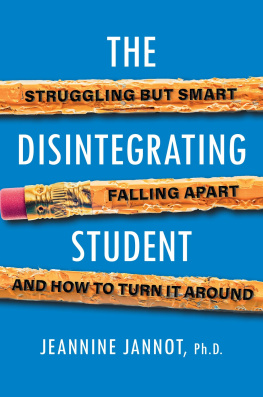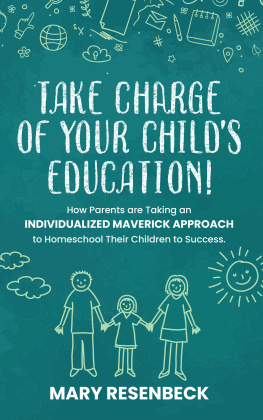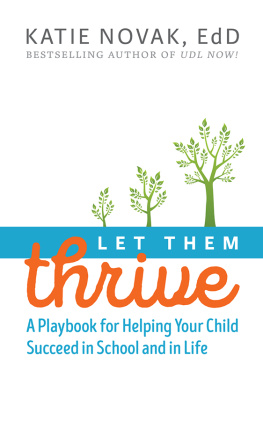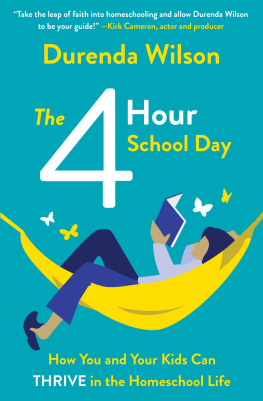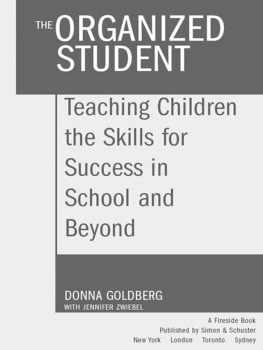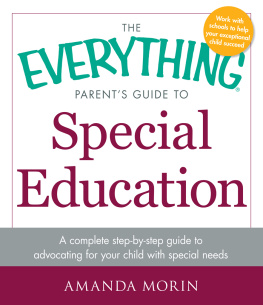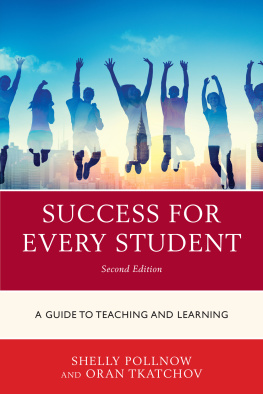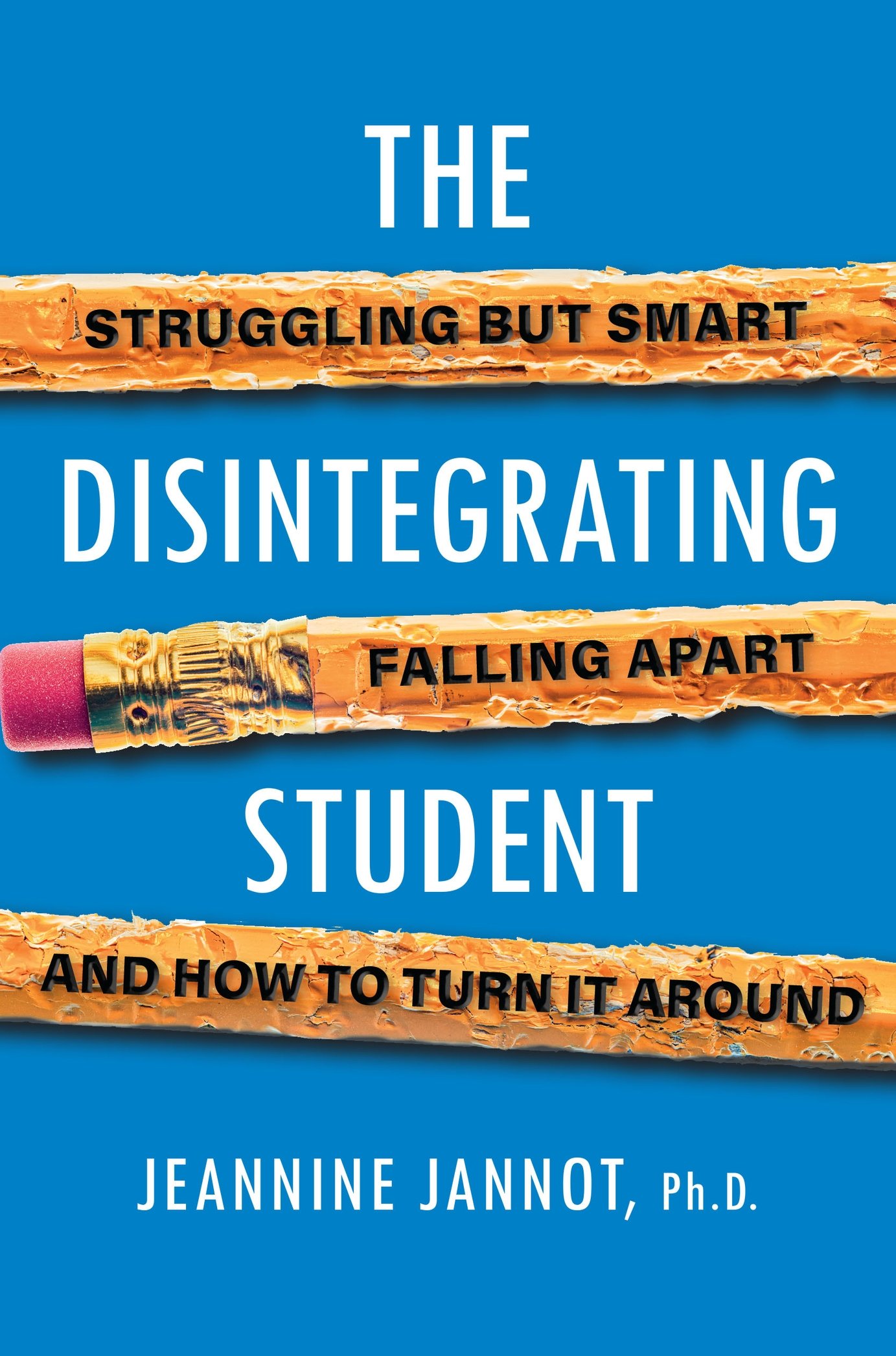Jeannine Jannot - The Disintegrating Student: Struggling But Smart, Falling Apart, and How to Turn It Around
Here you can read online Jeannine Jannot - The Disintegrating Student: Struggling But Smart, Falling Apart, and How to Turn It Around full text of the book (entire story) in english for free. Download pdf and epub, get meaning, cover and reviews about this ebook. year: 2021, publisher: Citadel Press, genre: Home and family. Description of the work, (preface) as well as reviews are available. Best literature library LitArk.com created for fans of good reading and offers a wide selection of genres:
Romance novel
Science fiction
Adventure
Detective
Science
History
Home and family
Prose
Art
Politics
Computer
Non-fiction
Religion
Business
Children
Humor
Choose a favorite category and find really read worthwhile books. Enjoy immersion in the world of imagination, feel the emotions of the characters or learn something new for yourself, make an fascinating discovery.
- Book:The Disintegrating Student: Struggling But Smart, Falling Apart, and How to Turn It Around
- Author:
- Publisher:Citadel Press
- Genre:
- Year:2021
- Rating:4 / 5
- Favourites:Add to favourites
- Your mark:
The Disintegrating Student: Struggling But Smart, Falling Apart, and How to Turn It Around: summary, description and annotation
We offer to read an annotation, description, summary or preface (depends on what the author of the book "The Disintegrating Student: Struggling But Smart, Falling Apart, and How to Turn It Around" wrote himself). If you haven't found the necessary information about the book — write in the comments, we will try to find it.
The Disintegrating Student will quickly become an essential guide for every student and parent working to survive and thrive in the current education environment. Carolyn Lambert, Parent Coach, Nathans Waypoint
You know your child is bright. Until recently, school was fineeasy, even. Now, your son or daughter is struggling academically and emotionally. Falling grades, scattered work, assignments unfinished or not turned in, outbursts and upheaval...what is going on? Is it remote-learning, hybrid classes, ever changing COVID protocols? Or is it something else? And how can you help?
The truth is that many smart students are reaching a point where they feel overwhelmed and stressed out. As their grades drop, so does their self-esteem, and this combination of external and internal pressures can seem insurmountable. To make matters worse, students feel unable to ask for or accept help. In The Disintegrating Student, Jeannine Jannot, Ph.D. draws on her decades of experience as a school psychologist, educator, and student coach to explain the reasons for this increasingly common phenomenon. Dr. Jannot identifies the skill deficits and counterproductive behaviors of disintegrating students, and provides a complete toolbox of techniques and strategies to combat them.
Effective and science-based, these tools address the specific challenges faced by students and their parents, including:
* organization * time management * stress * study habits * sleep * mindset * emotional well-being* and screens.
Learn how to build trust, motivate, and encourage responsibility and problem solving. Empowering and engaging, The Disintegrating Student will show you how to help your child embrace whats going right, address whats going wrong, and develop the skills needed for success in school and in life.
Dr. Jannot manages to succinctly explain...what may be happening for your child, how to help overcome those obstacles, and maybe even adjust your own expectations without feeling like youre giving in. Successful students are more than just good grades, and this book is a literal primer for creating a strong foundation for success.
Krista Smith, Organizational Psychologist and mother of three (16, 14, and 10)
Jeannine Jannot: author's other books
Who wrote The Disintegrating Student: Struggling But Smart, Falling Apart, and How to Turn It Around? Find out the surname, the name of the author of the book and a list of all author's works by series.

